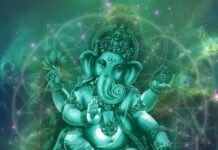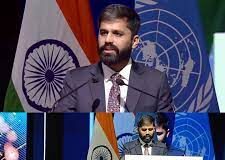The Indian government needs to abandon its dhimmitude when it comes to defending Hindu interests not only in India but elsewhere, too. Soon after the Leicester violence, where Muslim mobs clashed with Hindus after India’s win against Pakistan in the first Asia Cup match (which we then went on to lose badly at the Super Four stage), the British media has been building false equivalence between Hindu and Muslim angles to the violence, with the narrative tilted against Hindus.
By R Jagannathan
The Indian embassy did put out a statement condemning “the violence perpetrated against the Indian community in Leicester and vandalisation of premises and symbols of Hindu religion,” but this did not stop the Muslim Council of Britain from rubbishing the statement.
The council claimed that the Indian High Commissioner “must also condemn the deliberate targeting, intimidation and instances of assaults of Muslims and Sikhs”.
Assaults on Hindus can, apparently, be touched upon optionally or underplayed.
It’s a red herring, for the High Commission talked of violence against the “Indian” community, and not just Hindus, with the reference to Hindus being largely about the desecration of Hindu religious symbols.
And, to the best of one’s knowledge, no Indian Muslim was targeted by Hindus.
The violence was led by Pakistani Muslim mobs, and Indian Muslims were unlikely to have been involved, unless they were cheering for Pakistan on the day that the latter lost to India in the Asia Cup inaugural match.
The Pakistan embassy, on the other hand, had no need for ambivalence.
It was clear that it supported only the Muslim side in this violence.
The point one is emphasising is simple: If the British press is going to create false equivalence between the attacker and the attacked (even assuming Hindus indulged in counter-violence to defend their rights), and if globally there is an effort to dismantle Hindutva (the Pakistani mobs targeting a Hindu temple in Birmingham claimed that it was against Hindutva, not Hindus), who will stand up for Hindus?
On the other hand, any violence by Pakistani Muslims in Britain is subsumed under the head “South Asian”, making it sound as if anyone from India, Pakistan, Bangladesh, or even Nepal and Sri Lanka, could be involved.
One man who broke the mould was Sajid Javid.
In December 2018, Javid, British Home Secretary in the Theresa May government, was criticised for specifically naming Pakistani gangs for the scandal involving the “grooming” (a sanitised term for rape and abuse) of underage girls.
But, to his credit, he defended it.
The Guardian quotes him as saying: “Any normal person looking at the recent conviction of gangs that abuse children would have noticed that a vast majority are from Pakistani heritage and we cannot ignore that. If you do ignore that, if you sit in a position of power like me and you ignore that, what you actually end up doing is fuelling the voices of extremism that are out there, that will prey on that.”
Even here, Pakistani is short-hand for Muslim, for ethnically there is not much difference between Pakistanis and Indians.
As the only country with a largest concentration of Hindus in the world, it is India’s duty to not only defend “Indian” interests in general, but Hindu interests anywhere, if they are threatened.
In the past we have been busy defending Palestinian rights, we have occasionally talked about Baloch rights, we have even murmured a few words about the Chinese treatment of Muslims, but we have not uttered anything significant about defending Hindu rights, either in India or abroad.
The Citizenship Amendment Act (CAA), passed in 2019 but now held in suspension due to political pusillanimity, was intended to be the first move to defend Hindu rights in the sub-continent.
But Muslim and “secular” protests against this humanitarian law to give fast-track citizenship to Bangladesh’s persecuted minorities effectively spiked it.
If Muslims have a veto even in supposedly Hindu-majority India, what hope do Hindus have that their rights will be protected anywhere?
Especially given the global efforts to delegitimise Hindutva by setting it against Hinduism, and further to delegitimise Hinduism itself by setting one caste or one group against another?
This is a key theme in Rajiv Malhotra’s new book, Snakes in the Ganga: Breaking India 2.0.
He says that Harvard’s intellectual capacity is being harnessed to damage India, which is really not very different from harming Hinduism itself.
The Modi government must take its defence of Hindu interests more seriously, and not dilute it by pretending that it has to defend only “Indian” interests.
If Hinduism is harmed, India is harmed; if India is harmed, Hinduism will also be harmed.
What defines India’s core civilisational construct is Hinduism, which includes its co-evolved sister religions, Buddhism, Jainism and Sikhism.
It’s as simple as that. Attacking Hindutva is nothing but an excuse to attack Hinduism itself.
This article first appeared in www.swarajyamag.com and it belongs to them.








